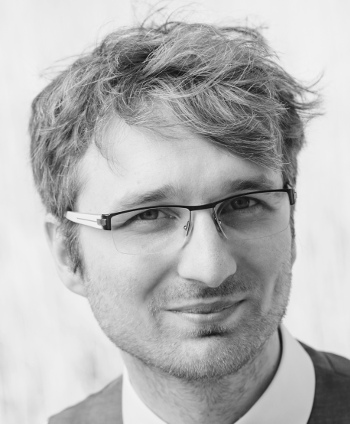with Mark de Berg and Morteza Monemizadeh
with Twan van Laarhoven and Robin Walters
with Stephen Kobourov, Maarten Loffler, Fabrizio Montecchiani, Marcin Pilipczuk, Ignaz Rutter, Raimund Seidel, and Manuel Sorge
 6th Workshop on Geometry and Machine Learning
6th Workshop on Geometry and Machine Learning
| 14:30-14:50 | Leyla Biabani (TU/Eindhoven) | Coresets for the k-Center Problem with Outliers with Mark de Berg and Morteza Monemizadeh |
| 14:50-15:10 | Iordan Ganev (Radboud University) | The QR Decomposition for Radial Neural Networks with Twan van Laarhoven and Robin Walters |
| 15:10-15:30 | The Influence of Dimensions on the Complexity of Computing Decision Trees with Stephen Kobourov, Maarten Loffler, Fabrizio Montecchiani, Marcin Pilipczuk, Ignaz Rutter, Raimund Seidel, and Manuel Sorge |
| 16:00 - 17:00 | Michael Schaub (RWTH Aachen University) | Signal Processing on Graphs and Complexes |
 |
Dr. Michael Schaub studied Electrical Engineering and Information Technology at ETH Zurich. After an MSc in Biomedical Engineering at Imperial College London, he obtained his PhD in Mathematics at Imperial College London in 2014. In the following he worked as a Research Fellow in Belgium, jointly at the Universite catholique de Louvain and at the University of Namur. In November 2016, Dr. Schaub moved to the Massachusetts Institute of Technology (MIT) as a Postdoctoral Research Associate. From July 2017 onwards he was a Marie Sklodowska Curie Fellow at MIT and the University of Oxford, before joining RWTH Aachen University in June 2020, supported by the NRW Return Programme (2019). He was awarded an ERC Starting grant in 2022. | Graph signal processing (GSP) tries to device appropriate tools to process signals supported on graphs by generalizing classical methods from signal processing of time-series and images - such as smoothing, filtering and interpolation - to signals supported on the nodes of a graph. Typically, this involves leveraging the structure of the graph as encoded in the spectral properties of the graph Laplacian. In certain scenarios, such as traffic network analysis, the signals of interest are however naturally defined as flows the edges of a graph, rather than on the nodes. After a brief recap of the central ideas of GSP, we examine why standard tools from GSP may not be suitable for the analysis of such flow signals. More specifically, we discuss how the underlying notion of 'signal vs noise' inherited from typically considered variants of the graph Laplacian are not suitable when dealing with edge signals that encode flows. To overcome this limitation, we devise signal processing tools based on the Hodge-Laplacian and the associated discrete Hodge Theory for simplicial (and cellular) complexes. We discuss applications of these ideas for signal smoothing, semi-supervised and active learning for edge-flows on discrete or discretized spaces. |
| 17:00-17:20 | Louis Theran (University of St Andrews) | Maximum Likelihood Thresholds via Graph Rigidity with Daniel Irving Bernstein, Sean Dewar, Steven J. Gortler, Anthony Nixon, and Meera Sitharam |
| 17:20-17:40 | Persistent Homology for Trojan Detection with Songzhu Zheng, Yikai Zhang, Hubert Wagner, and Mayank Goswami |
|
| 17:40-18:00 | Fiber Bundle Morphisms as a Framework for Modeling Many-to-Many Maps with Nico Courts, Colby Wight, Loc Truong, WoongJo Choi, Charles Godfrey, Tegan Emerson, Keerti Kappagantula, and Henry Kvinge |
|